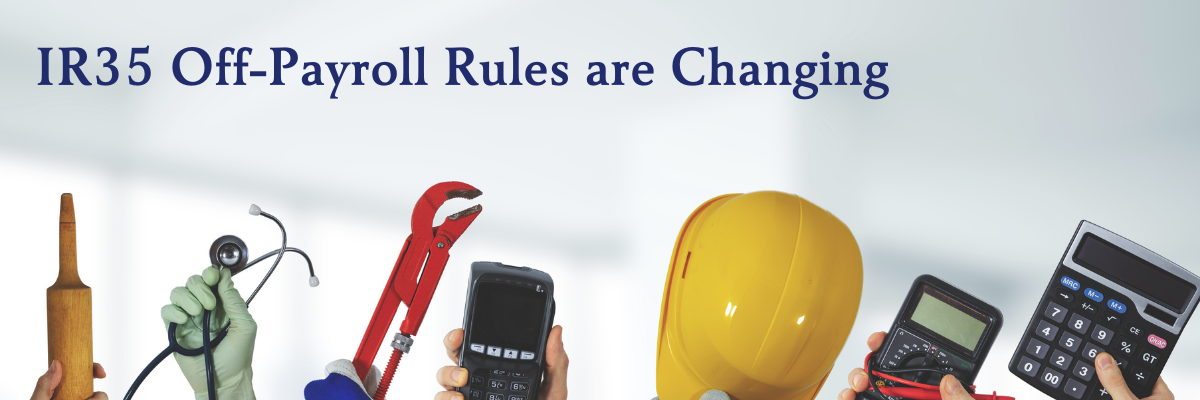Private Sector IR35 Changes – Will it impact you?

March 2021
The Government’s controversial legislation to tackle ‘disguised employment’ arrangements goes through an important change from 6 April 2021 which could have a significant impact on anyone who uses a limited company to carry out their services for medium and large businesses.
The legislation – commonly referred to as “IR35” – was introduced by HMRC back in 2000 after a rapid increase in the number of contractors providing their services to end user clients via a limited company. Limited companies are subject to a more favourable tax regime and any profits extracted from a company by the individual can be done free from employment rates of National Insurance. HMRC suspected that many of those individuals using limited companies to engage with clients really ought to have been employees and were not genuine ‘self-employed’ subcontractors using their own companies. The IR35 legislation seeks to redress the tax advantage obtained through such arrangements by subjecting the company’s turnover to the standard PAYE Income Tax and NIC rules.
Up until this year, individuals using limited companies to provide their services to the private sector had to ‘self-certify’ their IR35 status. In other words, it was up to the individual to decide whether their company’s income was subject to the less favourable employment tax rules. Not satisfied that enough subcontractors were doing so correctly, HMRC has now decided (after a year’s delay due to the Covid-19 crisis) to shift the onus of responsibility to the end user of the service – ie ‘the client’.
From 6 April 2021, if the end user client is a medium or large company they will be required to review their existing and new contracting arrangements to ensure that IR35 is applied properly. Therefore, they will now be the ones responsible for accounting for and paying the related tax and NIC (including the additional employer’s NIC) to HMRC. Once a sub-contractor’s position under the legislation has been determined, the decision must be documented by the client within a “Status Determination Statement” alongside the justification for the decision.
This rule change will undoubtedly increase the number of arrangements assessed to be within the scope of IR35 as end user clients seek to ensure their own compliance. Another possible outcome is that such businesses will be more likely in the future to insist on taking individuals on via their payroll as they seek to step away from riskier engagements with small limited companies. This could result in a number of previously ‘self-employed’ off-payroll workers, some of which were quite correctly treated as such, paying more Income Tax and NIC.
However, it should be noted that the new rules do not apply if the end user client is a small company. A company is defined as ‘small’ if it meets two of the following criteria:
- having turnover of less than £10.2m
- a balance sheet total of less than £5.1m
- fewer than 50 employees.
If your business falls into this category and you often take on subcontractors who use their own limited companies, then it will remain the responsibility of the subcontractor to assess themselves to IR35 legislation.
On the other hand, if you are a subcontractor who often engages with larger businesses then be prepared to be approached by your clients as they seek to determine your status under the legislation. We recommend engaging in open and constructive discussion with your end client to ensure that a well-informed and correct status decision is made.
We recently held a webinar covering the ins and outs of IR35, which you may find useful. You can view a recording of this webinar here on the GWA video channel.
Of course the Greaves West & Ayre team is on hand to assist you in how best to prepare for IR35 and please do get in touch if you need further assistance.


